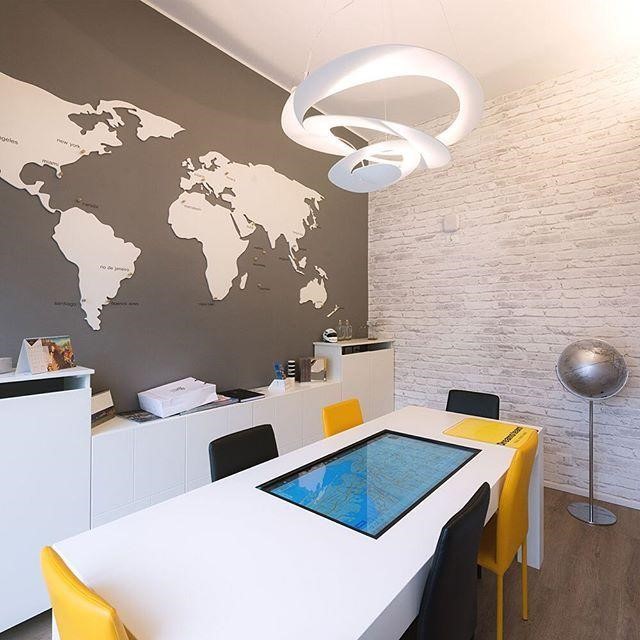Careful planning is essential to make a business trip successful. It’s not just about sorting out travel arrangements; it’s also about ensuring all the meetings and logistics are in sync. This whole process needs a lot of thinking ahead and smart planning.
Whether a quick trip back and forth within the country or a big international journey, having a solid plan is key to making the most of your time and being productive while away from home. Here’s our response to the most common question: How do you plan a business trip?
This guide is here to walk you through all the necessary steps and things to consider when planning and carrying out a well-organised business trip. The aim is to help you achieve your professional goals while ensuring you’re comfortable throughout the journey.
The Significance of Planning
Business trip planning requires meticulous attention to detail. By carefully considering all aspects of the travel experience, you can avoid pitfalls, maximise productivity, and minimise stress.
Preparing for a business trip involves creating a thorough travel checklist tailored to work-related necessities.
Defining Objectives and Setting Goals
Every business trip should have a clear purpose and a set of defined objectives. These objectives will serve as guiding principles, ensuring that every decision made during the trip aligns with the overall goals.
Whether the trip aims to secure new clients, attend a conference, or explore market opportunities, clearly understanding the desired outcomes will help you measure the trip’s success. You can use applications like Wanderlog or TripIt to prioritise your activities and make a plan.
Researching Destinations and Logistics
Venturing into unfamiliar territory requires thorough research to avoid surprises and ensure a smooth travel experience. Familiarise yourself with the local customs, transportation options, and accommodation choices. Utilise reliable travel resources like Booking.com and platforms like TIO, which can give you valuable insight into travel plans or budgets. You can consult with colleagues or acquaintances who have visited the destination to gain valuable insights.
Crafting a Budge
Planning your budget for any trip is crucial. Prep funds for travel, lodging, meals, and unexpected costs like baggage charges, medical expenses, taxi and cab prices, computerised tipping etc.
Setting aside extra money as a backup to handle unforeseen circumstances and ensure financial flexibility throughout your journey is wise.
Arranging Travel Details
Once you’ve decided on your destination, book your transportation, whether it’s flights or other means. The travel checklist for a work trip should encompass all essential items and tasks. At the same time, secure suitable accommodation, considering their proximity to your meeting places or venues.
Planning Itinerary and Meetings
Create a detailed itinerary that outlines your meetings, conferences, and networking events. Strive to balance work commitments and leisure time to optimise both productivity and the chance to immerse yourself in the local culture. Budgeting for a business trip demands the allocation of resources.
Packing Essentials and Organising Documents
Prepare by packing essential items like appropriate business clothes, necessary gadgets, and adapters. Ensure you have all the required documents, such as passports, visas, and all details easily accessible.
Understanding Cultural Variances
Take time to research and understand the cultural norms and etiquettes of the destination country. This knowledge will help you avoid unintentional misunderstandings and showcase respect for local customs, which can contribute to building rapport with potential clients or partners.
Connectivity and Communication
Stay connected using essential technology and ensuring reliable communication channels. Consider options such as local SIM cards or international data plans to maintain seamless connectivity during your stay.
Efficient Time Management
Time management while travelling involves adapting your schedule to suit different time zones. This means planning your rest and work hours thoughtfully to align with the local time of your destination.
One helpful strategy is gradually adjusting your sleep patterns before and during the trip. This approach can assist in minimising the effects of jet lag, allowing your body to acclimate to the new time zone more smoothly. By gradually shifting your sleep schedule, you can ease the transition and enhance your overall energy levels and alertness during the trip. This adaptation is crucial for optimising productivity and ensuring you’re at your best for important meetings or engagements.
Health and Safety Measures
Prioritise your health by getting necessary vaccinations and taking precautions recommended for the destination. Familiarise yourself with emergency procedures and available healthcare options.
Optimising the Trip’s Value
Make the most of your trip by using it to connect with people and build relationships. Meet and interact with local businesses and professionals to grow your network and consider working together on projects or partnerships.
Post-Trip Assessment
The success of your trip is based on the objectives you set beforehand. Reflect on your experiences to identify key takeaways and lessons learned, which can enhance your efficiency and effectiveness on future business trips.
The Traveler’s Guide to Successful Business Trips
In our industry, building relationships through face-to-face interactions is important for success. That’s where business trips come in—they’re crucial for expanding our influence, strengthening partnerships, and getting our products or services in front of more people.
When we don’t plan business trips properly, they can be stressful. To have successful trips, we need to plan carefully. Planning everything, like travel and meetings, and thinking about what could go wrong helps a lot. This planning helps us maximise our time and opportunities during the trip. It increases the chances of things going well and having good meetings. Ultimately, it shows how important and valuable these business trips are.
TIO is a tool for all
Planning your business trip becomes effortless with Travel Ideas Online (TIO). Our platform provides a complete set of tools to simplify organising your business travels. TIO covers everything from flight bookings to finding suitable accommodations.
We understand the importance of efficiency and convenience. With just a few clicks, you can book flights, find accommodations, organise transportation, and manage your entire itinerary effortlessly. Our platform isn’t just about booking; it is about helping you plan clearly and have options to make the best decision.
What sets TIO apart is its user-friendly interface coupled with powerful analytics. These tools help you make smarter decisions and fine-tune your travel plans to suit your needs. TIO ensures a seamless and successful business travel experience, from tracking expenses to optimising itineraries. Read more about us here.
Conclusion
To sum it up, planning a business trip goes beyond mere logistics; it involves a strategic approach to capitalising on opportunities, fostering connections, and meeting set goals. Through a business travel checklist, it is imperative to cover all necessary aspects, from logistics to documentation preparation, cultural awareness, and adaptability. Reflecting on experiences, learning from challenges, and implementing improvements from each trip is crucial for continually improving future business. Ultimately, a well-prepared business trip catalyses growth, innovation, and building invaluable relationships in the dynamic realm of global business. Visit TIO for more information.
FAQs
How far in advance should I start planning a business trip?
Plan at least a month in advance to secure the best deals and accommodations.
What are some essential items to pack for a business trip?
Essential items include business attire and necessary gadgets, e.g., a portable power bank, Bluetooth, earphones, portable speakers, travel documents, and adaptors.
How can I effectively manage time during a business trip across different time zones?
Adjust your sleep schedule gradually before the trip and plan rest and work hours according to the new time zone.
What should I do if I encounter cultural differences during a business trip?
Respect and adapt to local customs and etiquette to build rapport with potential clients or partners.
How important is evaluating a business trip after it’s concluded?
Evaluating a business trip helps assess its success and learn from the experience for future endeavours.


